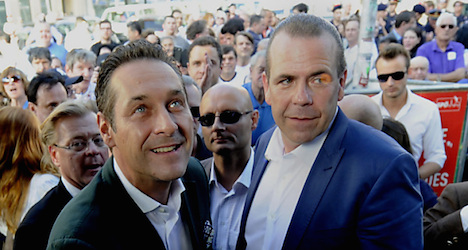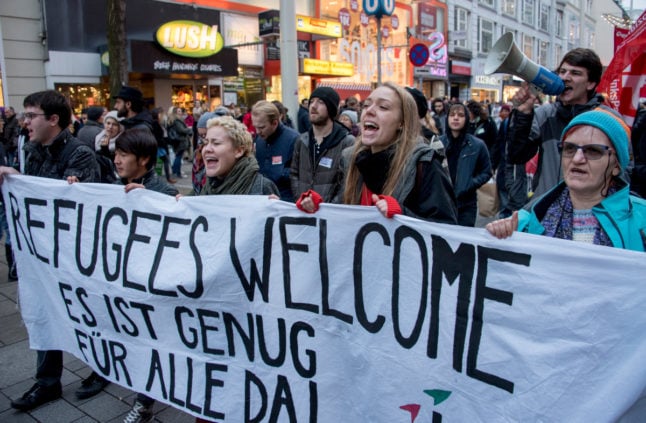POLITICS
Strache seeks distance from NF anti-semitism
Freedom Party (FPÖ) leader HC Strache sought today to distance himself from a developing row over remarks made by French far-right National Front founder, Jean-Marie Le Pen.
Published: 10 June 2014 16:22 CEST

HC Strache and Harald Vilimsky. Photo: APA
After the outcry of anti-Semitic statements made by the National Front founder Jean-Marie Le Pen, FPÖ leader Heinz-Christian Strache made it clear in an interview with radio station OE1 that "Such a thing has no place in the political debate."
Strache is seeking to form a pan-European parliamentary alliance with several right-wing parties, including the French National Front under the leadership of Le Pen's daughter, Marine Le Pen. The remarks led to a dispute between Le Pen and his daughter, thereby complicating efforts to form the alliance.
The older Le Pen has had multiple convictions for inciting racial hatred and denying crimes against humanity.
Austria's Greens party said that the statements of Strache did not go far enough. "If the Freedom Party, in spite of everything, adheres to a collaboration with Le Pen, it is once again clear that Strache and Co. are not so far away from the politics of Le Pen – whether father, daughter or granddaughter," underlined the Green MEP Ulrike Lunacek in a press release.
The 85-year-old Jean-Marie Le Pen had been asked in an interview about those who may wish to leave France after the victory of the National Front in the EU elections, including the Jewish musician Patrick Bruel, a fierce critic of Le Pen.
"Yeah, that does not surprise me," Le Pen had said, adding with a satisfied laugh "You know, since next time we make a furnace charge" ("on fera une Fournee la prochaine fois"). Such a pun is grossly offensive, suggesting as it does the Nazi death camps and their furnaces.
FN party leader Marine Le Pen said on Sunday it was a "political mistake" by her father. Although she was convinced that he had been "interpreted maliciously," she told the news portal lefigaro.fr. But her father had very great political experience and should have foreseen such an interpretation.
Url copied to clipboard!


 Please whitelist us to continue reading.
Please whitelist us to continue reading.
Member comments